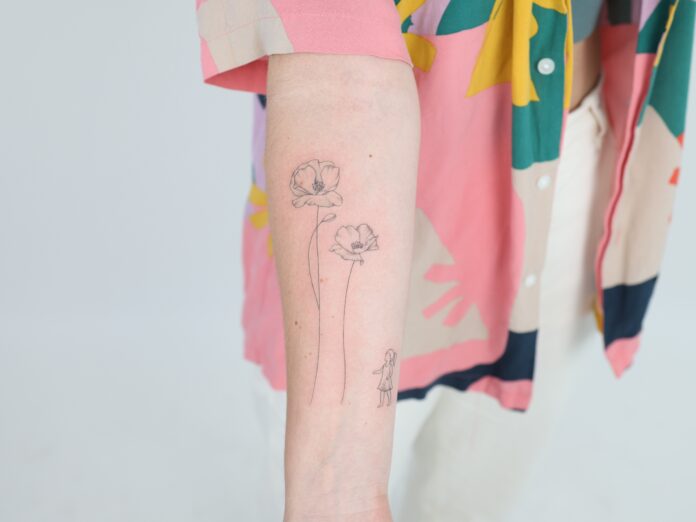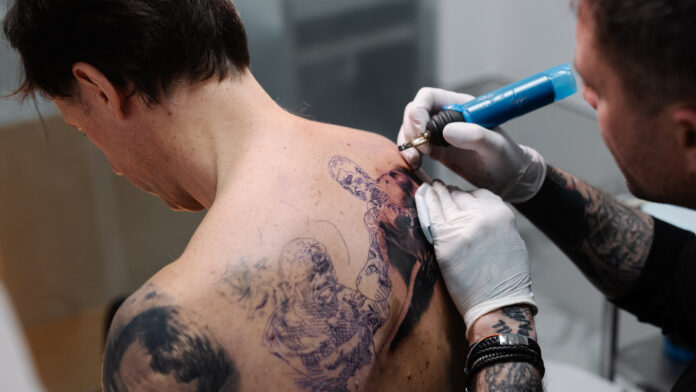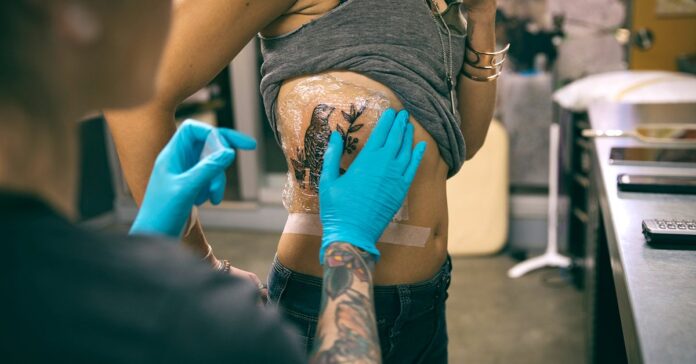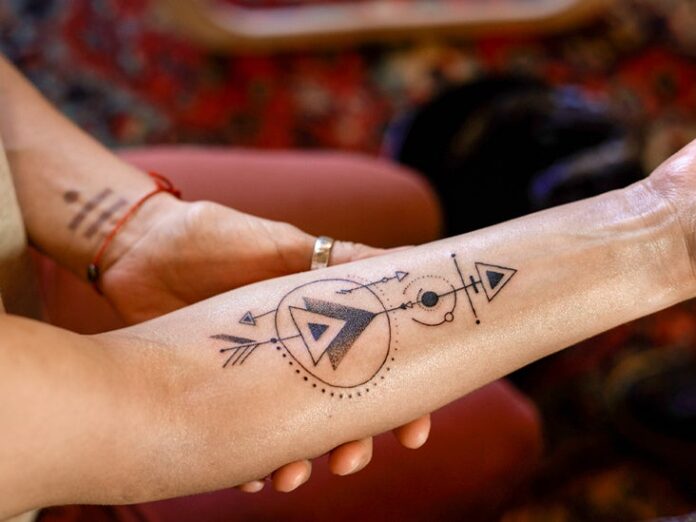It has happened to most people, particularly teenagers. They see a rockstar, celebrity, or influencer with a tattoo and then decide they want to get one. Ink can be pretty contagious that way!
The origins of tattooing can be traced back to ancient times, with evidence of tattooed mummies dating as far back as 5,000 years, in or around the Neolithic period. Different cultures across the globe developed their unique tattooing traditions and techniques, each with its own significance and symbolism.
In Polynesia, tattoos held deep cultural and spiritual meaning. They served as markers of social status, rites of passage, and representations of tribal identity. The intricate patterns and symbols told stories of lineage and achievements, preserving the cultural heritage of the Polynesian people. Just watch Moana! Tonnes of tattoos in that movie!
In ancient Egypt, tattoos were associated with religious and magical practices. They were used for therapeutic purposes and as protective amulets. The Egyptian mummies have revealed tattooed symbols that were believed to provide spiritual guidance and safeguard the individual in the afterlife.
In Japan, the art of tattooing, known as irezumi, has a long history rooted in both decorative and spiritual practices. Originally used as a form of punishment, it later transformed into an art form representing courage, strength, and social status.
Today, traditional Japanese tattoos continue to be highly regarded as intricate masterpieces. Of course, in Native American cultures, tattoos were integral to tribal customs and spiritual beliefs. They served as markers of personal achievements, spiritual connections, and tribal affiliations. This kind of tattooing often featured natural elements and animal symbolism, connecting individuals to their ancestral roots.
So, as you can see, tattoos have a deep meaning across an array of cultures, which can be significant to you if you descend from any of these groups. Does that mean you should rush out and get inked? Not just yet! There is a lot more to consider than just the pattern or image you want to get, and this article seeks to guide you through your decision-making process for getting ink or not.
Consideration 1- It Will Be There Forever

OK, not to sound like your parents or your nan, but when you get a tattoo done without getting lasers involved, the image, pattern, or message that is inked will last for the rest of your life.
As mentioned before, this is why so many cultures see tattoos as something more meaningful than getting your favorite band name out on your arm!
Remember, depending on the tattoo tools that are used, such as a Barber DTS tattooing machine, shader needles, or even black ink, the removal of a tattoo can be tricky, even with laser removal technology, it may not be fully effective. So, take the time to choose the tattoo you want to get, and ensure that it is meaningful.
Consideration 2- Placement on the Body
The placement of your tattoo plays a crucial role in its visibility and its impact on your daily life.
As lame as it may sound, you need to think about both the present and future implications. Consider factors like your personal and professional life, as well as social norms and expectations. Tattoos on visible areas such as the face, neck, or hands may affect job prospects or public perception of you, so try to avoid these areas, only tattooing the neck with smaller, coverable tattoos.
Opting for a location that can be easily covered, like the upper arm or thigh, provides flexibility in showcasing or concealing your tattoo as desired and also allows you the freedom to show it off when you want to. Reflect on how the placement aligns with your lifestyle and long-term goals.
Consideration 3- Tattoo Artist Selection

It goes without saying that when you get a tattoo, hiring a skilled and reputable tattoo artist is vital for a successful tattooing experience. Do thorough research and read reviews to identify artists known for their expertise and professionalism. Look for tattoo artists specializing in the style you desire, as each artist has their unique strengths.
Visit tattoo studios, review their portfolios, and engage in consultations to assess their artistic abilities and hygiene practices. Ask questions about their experience, training, and the materials they use to ensure a safe and satisfying tattooing process. Remember, tattoos are permanent, so finding the right artist is crucial for you to have a great time and get art that you are proud of.
Consideration 4- Health and Aftercare

Before getting a tattoo, you will need to honestly review your overall health and consider any existing medical conditions. Certain medical conditions or medications may impact the healing process or pose risks during tattooing.
For instance, if you have an autoimmune disease, this can cause issues with healing, as your body considers your tattoo to be an open wound, and the last thing you will want is a flare of the disorder you have. Also, consider your skin; if you have dermatitis, psoriasis, or acne, it may cause more issues than are needed if you get a tattoo.
So, consult with your doctor if you have any concerns. Additionally, understanding and following proper aftercare instructions are crucial for the healing and longevity of your tattoo. This includes keeping it clean, avoiding sun exposure, and applying recommended ointments or lotions. Committing to aftercare practices will ensure your tattoo heals properly and maintains its vibrancy over time, as well as preventing it from becoming infected.
Consideration 5- Covering It Over
Consider that if you already have a tattoo that you got when you were younger or your views since you got it have changed (very common with religious or relationship-based tattoos), there are other options to cover it. Many tattoo parlors can cover old tattoos with new ones, and a lot of tattoo parlors also offer lasering if the tattoo is too large or too dark to cover.
Alternatively, there is the option to use concealer if you want to minimize the appearance of the tattoo. Yes, that’s right! If it’s good enough for Hollywood, it’s good enough for you! Just look online for heavy coverage foundations that can remove the tattoo without lasers or cover-ups.






